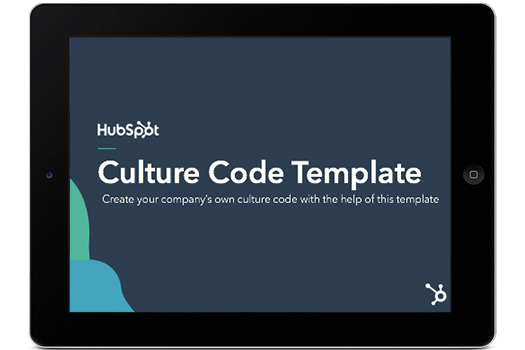Free Resource
.png)





A defined company culture can set you apart from your nearest talent competitors and weed out unqualified applicants or bad fits for your culture. It also contributes to employees’ productivity and morale.
We’ve learned that the most important things job seekers want to learn about employers include: what makes the company an attractive place to work: compensation, benefits, mission, vision and values.
Tying it all together in a defined code that lives and breathes at your organization is what creating a company culture code is all about!
You need to know what your company culture is before you can write it down. The best way to find out about the company culture is by asking the people who work there, and then take a survey of all employees. It's important that this is done in person or over video chat so that they don't feel like they're being judged on their answers. Once enough data is collected from different sources, summarize them into an easily readable document for everyone in the company.
We ask for your information in exchange for a valuable resource in order to (a) improve your browsing experience by personalizing the HubSpot site to your needs; (b) send information to you that we think may be of interest to you by email or other means; (c) send you marketing communications that we think may be of value to you. You can read more about our privacy policy here.
Company culture is the values, behaviors, and shared vision that contribute to the environment of an organization. For example, HubSpot culture is driven by a shared passion for its mission and metrics.
Just sharing some free knowledge that we hope you’ll find useful. Keep us in mind next time you have marketing questions!
Company culture is the way people feel about the work they do, values they believe in, where they see the company going, and what they're doing to get it there.
The 4 types of organizational culture are Clan Culture, Adhocracy Culture, Market Culture and Hierarchy Culture.
All fields are required.